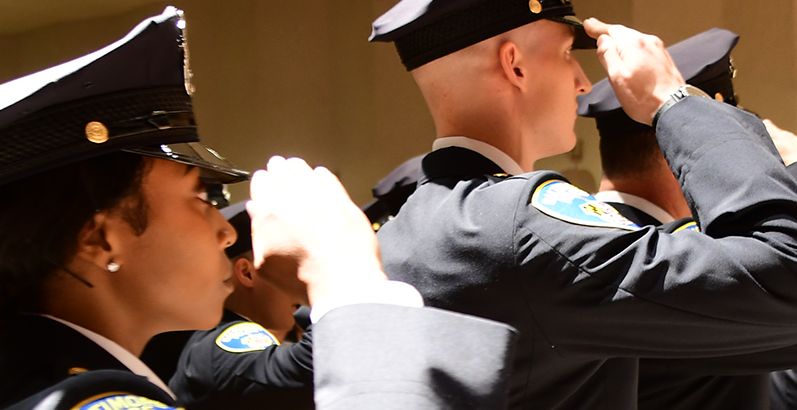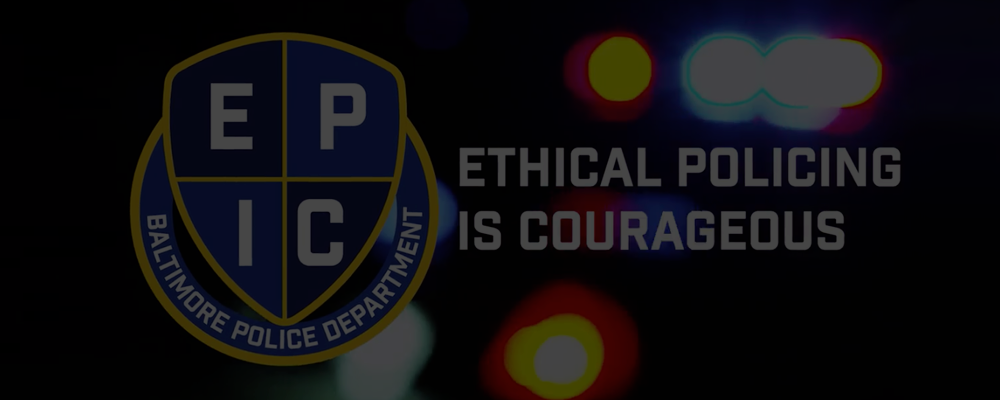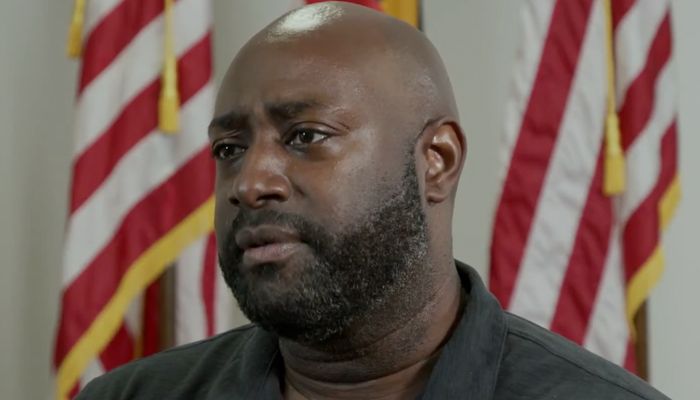What is Epic?
Ethical Policing Is Courageous (EPIC) is a peer intervention program that trains officers across all ranks to intervene in potentially problematic situations to prevent misconduct and mistakes—potentially saving careers and lives in the process. Through continual training and organizational support, EPIC empowers officers to step in before a wrongful action occurs.
EPIC builds upon social science research and peer intervention programs in other fields to provide officers with skills to intervene in situations to preserve officer and community wellness. Originally developed by the New Orleans Police Department in collaboration with social science experts and civil rights leaders, EPIC educates officers, through scenario-based training, about the barriers to intervention and how to overcome those barriers. Recently, EPIC has gained national momentum, with the support of Georgetown Law’s Active Bystandership in Law Enforcement (ABLE) Project. Baltimore is an active participant in the ABLE Project and is at the forefront of peer intervention in policing with the implementation of its EPIC program.
Why EPIC?
Failing to intervene in misconduct can result in profoundly tragic consequences for the individuals involved, the community, and the policing profession. EPIC trains officers to overcome inhibitors to action and the “blue wall of silence” to step in to protect and serve everyone proactively. Intervening to prevent misconduct preserves the health and wellness of our community and Department, and, in doing so, EPIC fosters improved police-community relations and enhances the Department’s ability to work collaboratively with the community to build a safer Baltimore.
How does EPIC work?
While EPIC begins as an eight-hour training for all current and future officers, the Department is incorporating EPIC principles throughout operations to support peer intervention for officer and community wellness. On top of the eight-hour introductory training, BPD will continually reinforce EPIC throughout future training, provide policy protections and benefits to officers who intervene, emphasize the availability of officer wellness services, and support officers who intervene through performance evaluation recognition, promotional considerations, and departmental awards.
Promotes collective responsibility to protect officers and community
Trains officers to identify warning signs
Equips officers with skills to intervene
Protects and rewards officers who do the right thing
Integrates with officer wellness services
Reinforces principles through continual training and departmental recognition
Training Materials

Starting in late 2020, all sworn members of the BPD will receive EPIC training. This training is based on the science of active bystandership, and participants learn through real-world scenarios and case studies. The goal of the training is to teach members how to intervene effectively and how to protect members who intervene from retaliation.





